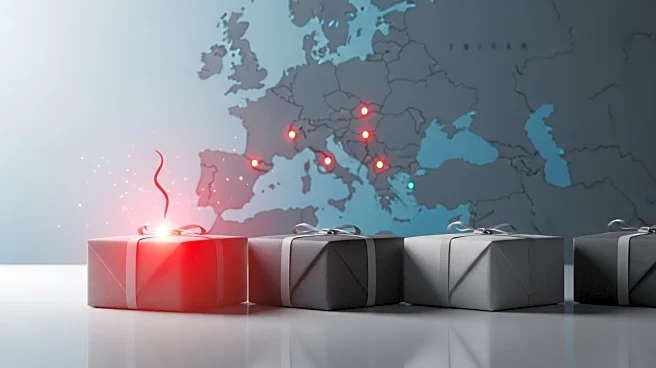What is the story about?
What's Happening?
Lithuanian prosecutors have charged fifteen individuals linked to the Russian military intelligence service, GRU, for orchestrating parcel explosions across Europe. The network allegedly concealed explosive devices within everyday items like massage pillows and cosmetics, leading to incidents in the UK, Germany, and Poland. The parcels were sent via courier services DHL and DPD, with some devices detonating during transit. The investigation has revealed connections to previous arson attacks, including one on an Ikea store in Vilnius. International arrest warrants have been issued, and extensive searches have uncovered significant quantities of explosives.
Why It's Important?
This development highlights the ongoing security challenges posed by state-backed operations targeting European infrastructure. The use of courier services to transport explosive devices underscores vulnerabilities in logistics and supply chains, prompting potential revisions in security protocols. The involvement of multiple countries in the investigation reflects the transnational nature of the threat, necessitating coordinated efforts to address such security risks. The incident may strain diplomatic relations between Russia and affected European nations, impacting geopolitical dynamics and security policies.
What's Next?
Authorities across Europe are likely to enhance security measures for courier services and logistics operations to prevent similar incidents. The investigation may lead to further arrests and uncover additional plots, necessitating continued international cooperation. Diplomatic responses from affected countries could include increased sanctions or other measures against Russia, influencing broader geopolitical relations. The situation may also prompt discussions on improving intelligence-sharing and counter-terrorism strategies within Europe.
















